A financial planner is crucial when navigating complex financial decisions or setting long-term objectives. Key moments to consider their expertise include significant life changes, such as marriage, having children, or transitioning into retirement; receiving a large sum of money, perhaps from an inheritance or sale of a property; or when you're unsure about investment choices or tax implications of your decisions. Additionally, if managing finances becomes overwhelming or you're uncertain about achieving your financial goals, a planner can offer clarity and strategy. Even if you feel financially adept, periodic check-ins can ensure you're on track and adapting to new financial landscapes. Ultimately, whenever you seek specialized advice to optimize and safeguard your financial future, a financial planner is invaluable. Starting your career with a robust financial plan can set the trajectory for a secure financial future. A financial planner aids in carving out savings plans, debt repayment strategies, and investment decisions tailored for those in the early stages of their career. Early career often means navigating financial firsts, like choosing insurance policies or starting an investment portfolio. A financial planner deciphers these complexities, ensuring you make well-informed choices. Combining lives also means intertwining finances. Financial planners assist couples in merging assets, setting joint financial goals, and planning for future endeavors like purchasing a home together. The joy of parenthood comes with significant financial responsibilities. Financial planners can guide new parents in budgeting for additional expenses, planning for education costs, and even setting up trusts. The realm of real estate is riddled with financial complexities. Whether you're a first-time buyer or selling to upgrade, a financial planner can provide insights on mortgage options, tax implications, and the investment potential of properties. A career switch often means new financial dynamics – from handling pensions from past employers to adjusting to potential pay variations. Financial planners can streamline this transition, ensuring financial stability. Embarking on an entrepreneurial journey demands rigorous financial planning. From startup costs to cash flow management, a financial planner can be instrumental in ensuring your business starts on a solid financial foundation. Crafting a retirement plan requires a precise understanding of your current assets, future needs, and potential investment growth. Financial planners analyze these components, devising a strategy to ensure a comfortable retirement. Planning for the eventual distribution of your assets is crucial. Financial planners guide clients through creating wills, setting up trusts, and understanding the tax implications to ensure their wishes are honored. Suddenly coming into money, be it through inheritance, lottery, or other means, can be overwhelming. Financial planners assist in creating a plan to manage, invest, and preserve this wealth. Life's uncertainties, like job losses or unexpected major expenses, can strain finances. In such times, a financial planner can provide strategies to navigate these challenges, from restructuring debts to liquidating assets smartly. Much like health check-ups, financial health benefits from regular reviews. Even in the absence of significant life changes, financial planners can evaluate and optimize your financial strategies based on market dynamics and personal milestones. As life evolves, so do financial aspirations. Whether it's a newfound desire to travel the world or a change in retirement plans, financial planners adapt strategies to cater to these evolving needs. In the multifaceted journey of life, the importance of a financial planner cannot be understated. Their expertise becomes pivotal during major life milestones like starting a career, marital union, parenthood, property dealings, and transitions in one's professional sphere. Additionally, they play an indispensable role when charting retirement plans, managing estate affairs, or dealing with unexpected financial occurrences. Regular financial health assessments, akin to medical check-ups, are crucial for ongoing prosperity, even if one's goals evolve over time. While the allure of digital financial tools is undeniable, they cannot replace the tailored guidance a planner offers. In essence, the crux of financial well-being revolves around timely consultations with experts who understand the unique nuances of individual financial landscapes. Whether it's a windfall or a setback, a beginning or a culmination, financial planners provide the compass for a secure financial voyage.When Do You Need a Financial Planner?
Beginning of Career and the Role of a Financial Planner
Set a Strong Foundation
Navigate a Financial Basics
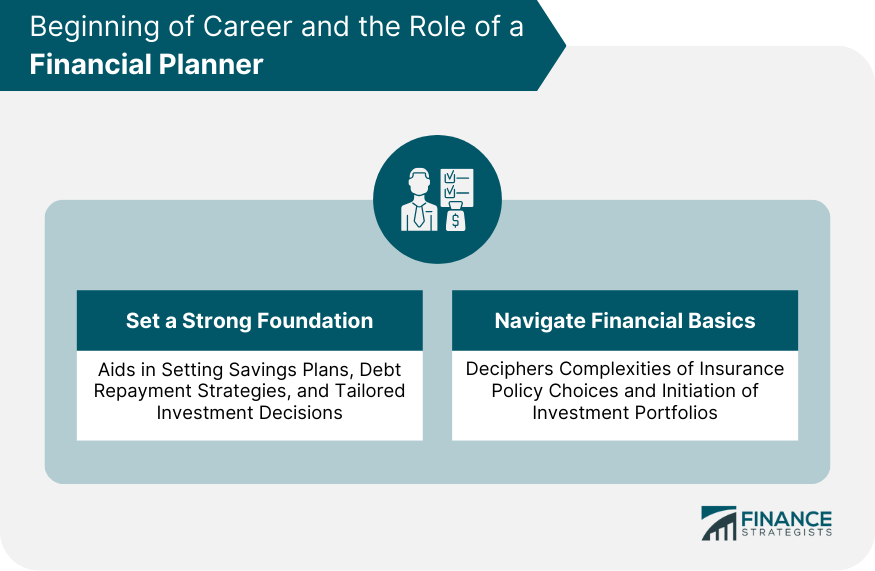
Major Life Events and Financial Planning Considerations
Marriage and Partnership
Having or Adopting Children
Buying or Selling Property
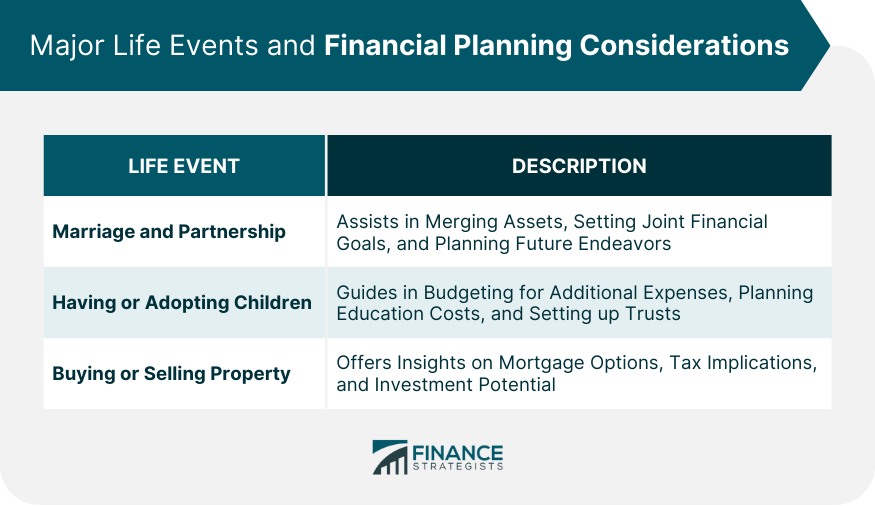
Career Transitions and Financial Guidance Needs
Changing Jobs or Careers
Starting a Business
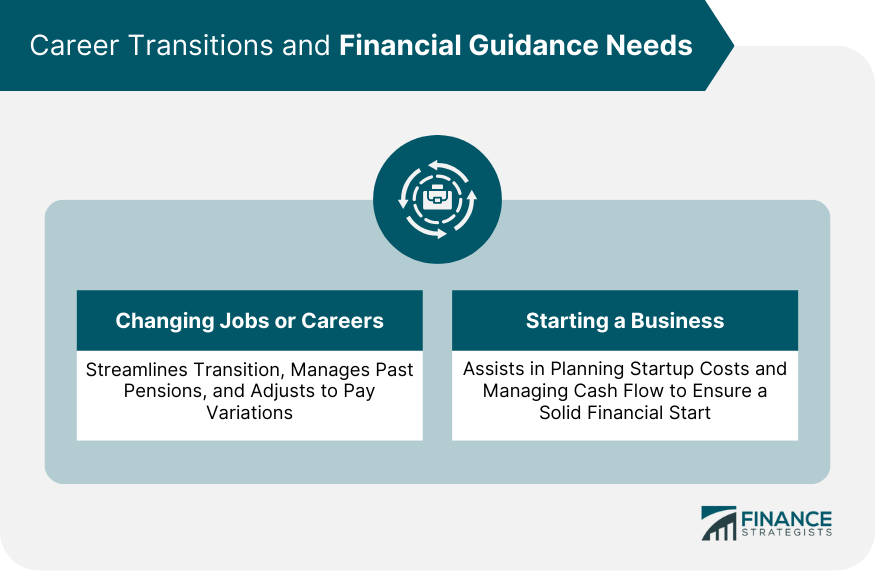
Approaching Retirement and Associated Financial Planning
Retirement Planning
Estate Planning
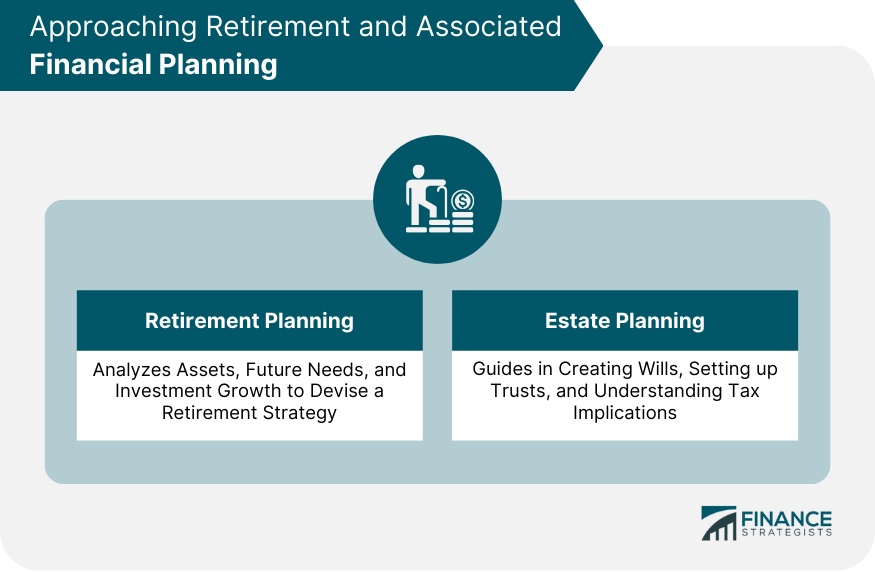
Unforeseen Life Events and Financial Planning Solutions
Financial Windfalls
Financial Setbacks
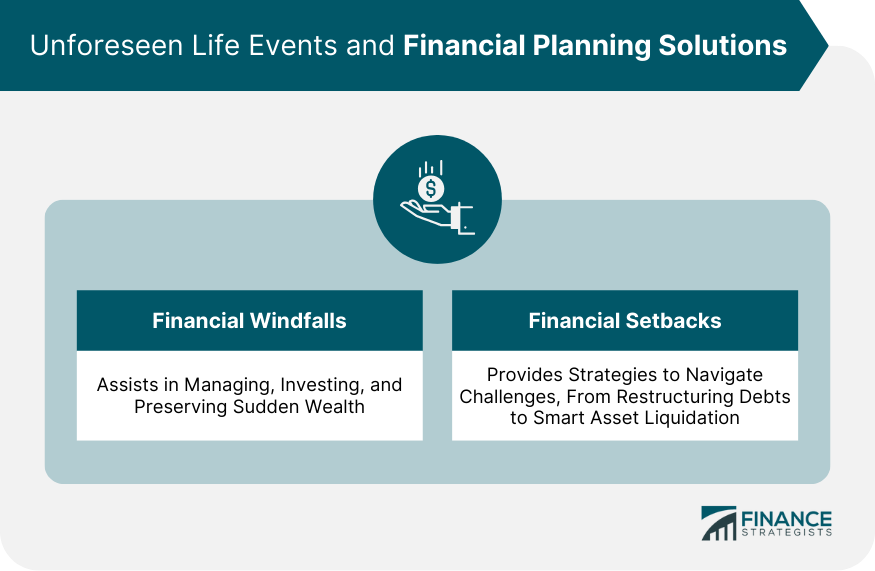
Regular Reviews and Financial Goal Reassessment
Regular Financial Check-ups
Changing Financial Goals
Conclusion
When Do You Need a Financial Planner? FAQs
Age isn't the sole determinant; it's more about life events and goals. However, starting in your 20s or 30s can help lay a strong financial foundation.
During a career transition, especially if there's a gap in employment or a significant salary change. A financial planner can help navigate retirement accounts, budget adjustments, and financial planning for the transition period.
It's advisable to consult a financial planner before or immediately after receiving an inheritance. They can guide on tax implications, investment strategies, and efficient use of the inherited assets.
Ideally, engage a financial planner in the planning stages of such events. They can assist with budgeting, financial goal-setting, and ensuring you're prepared for the associated costs.
While digital tools offer convenience, a financial planner provides personalized advice based on your unique situation. If you're facing complex financial decisions or want a holistic overview, that's when a financial planner becomes essential.
True Tamplin is a published author, public speaker, CEO of UpDigital, and founder of Finance Strategists.
True is a Certified Educator in Personal Finance (CEPF®), author of The Handy Financial Ratios Guide, a member of the Society for Advancing Business Editing and Writing, contributes to his financial education site, Finance Strategists, and has spoken to various financial communities such as the CFA Institute, as well as university students like his Alma mater, Biola University, where he received a bachelor of science in business and data analytics.
To learn more about True, visit his personal website or view his author profiles on Amazon, Nasdaq and Forbes.















